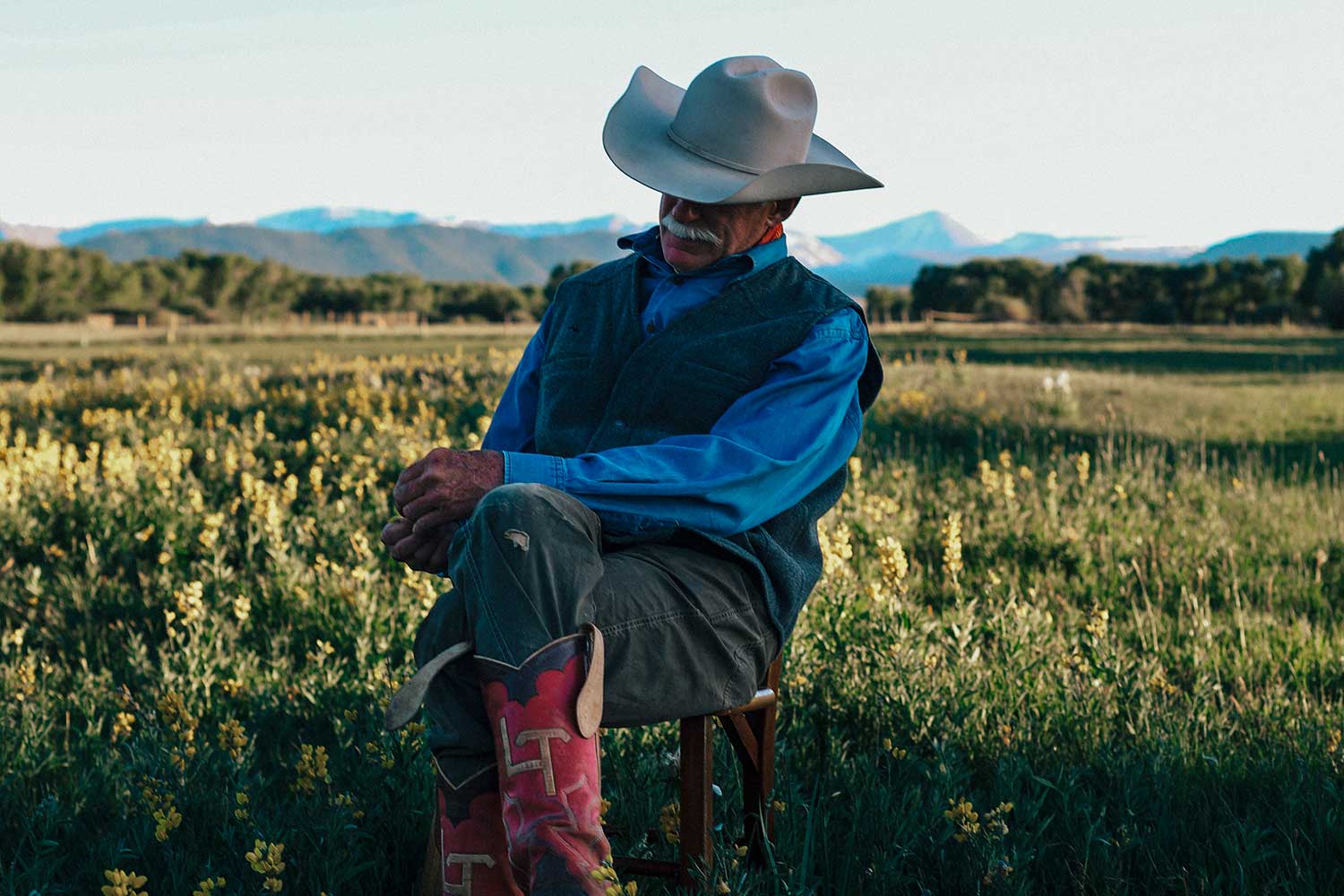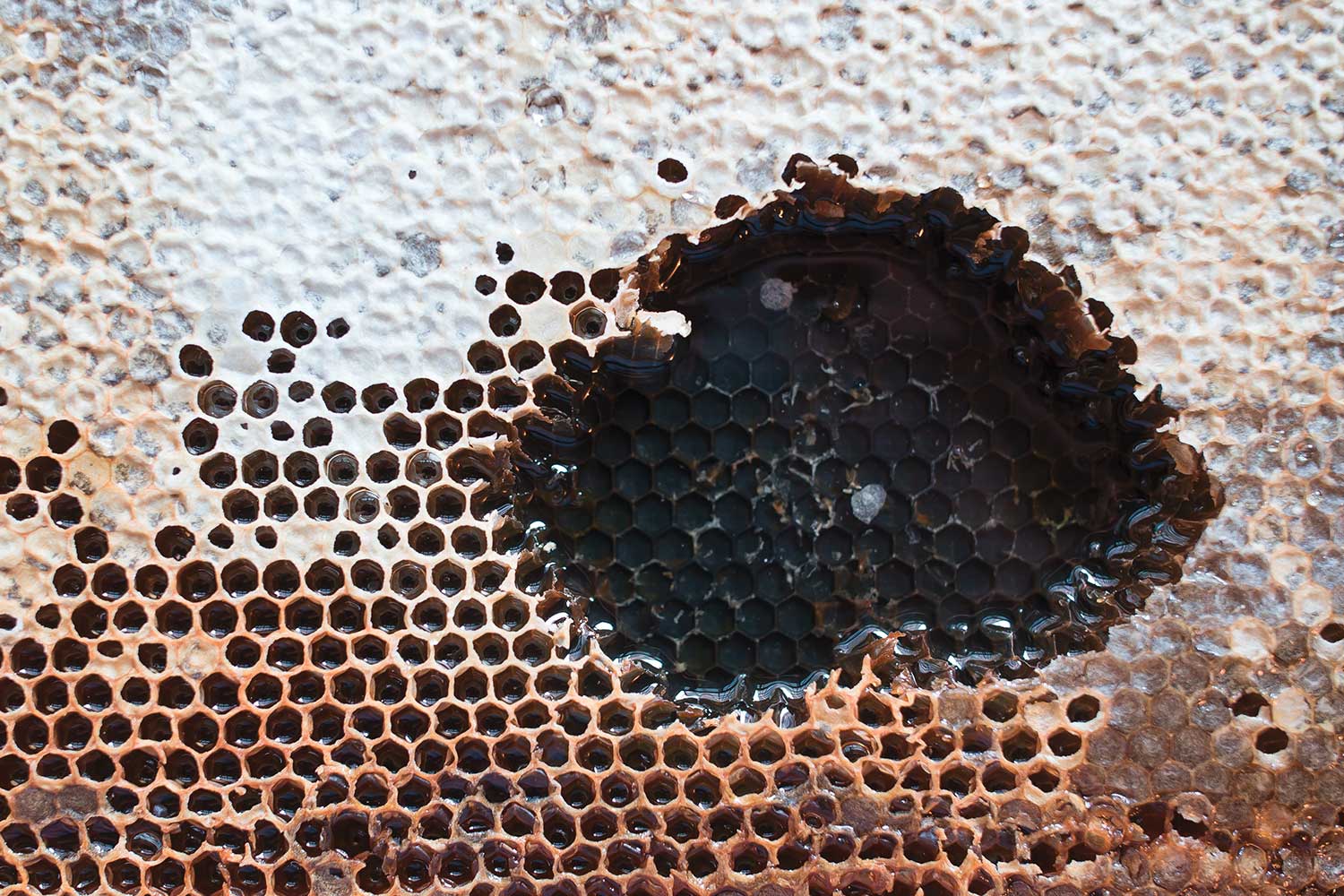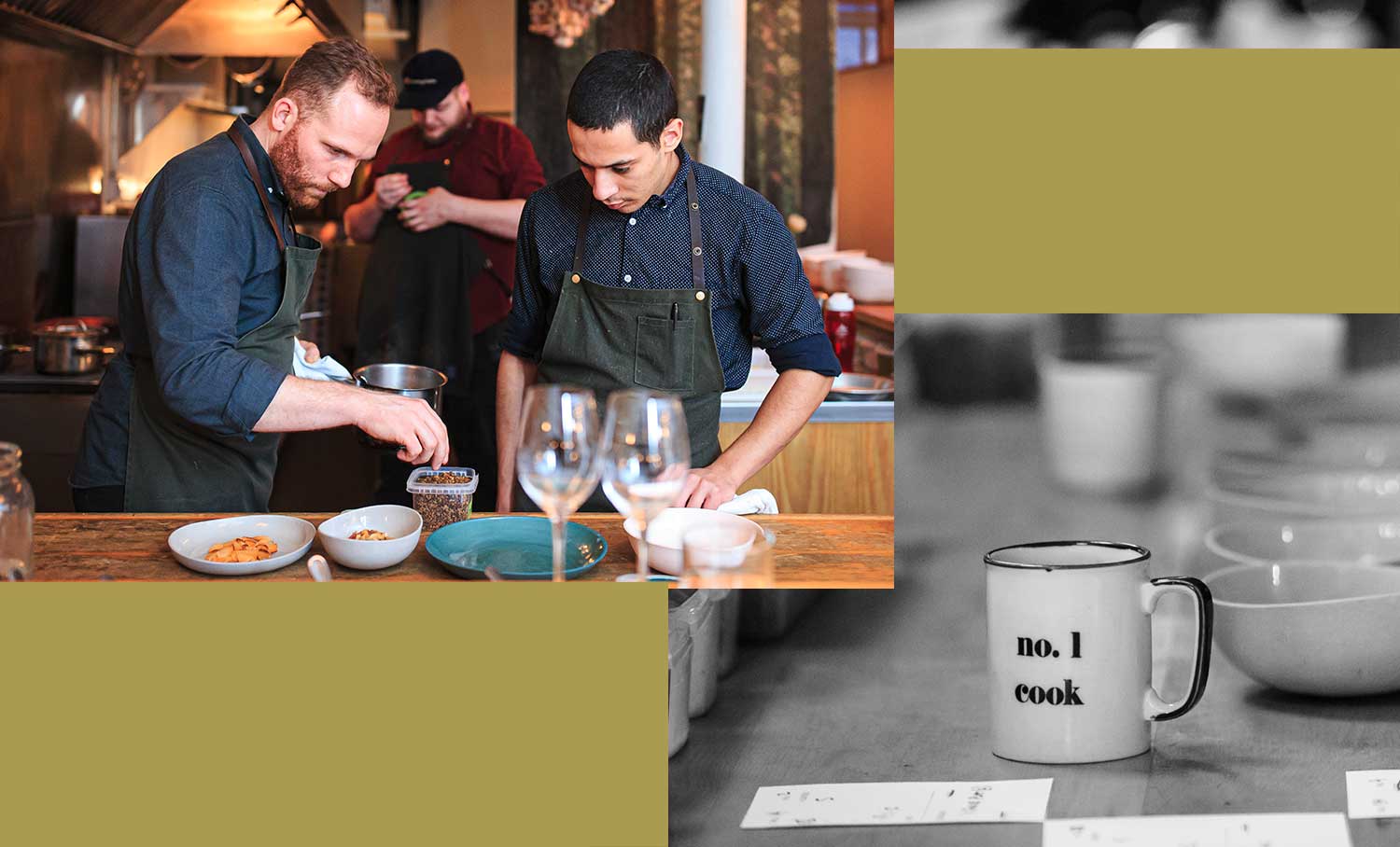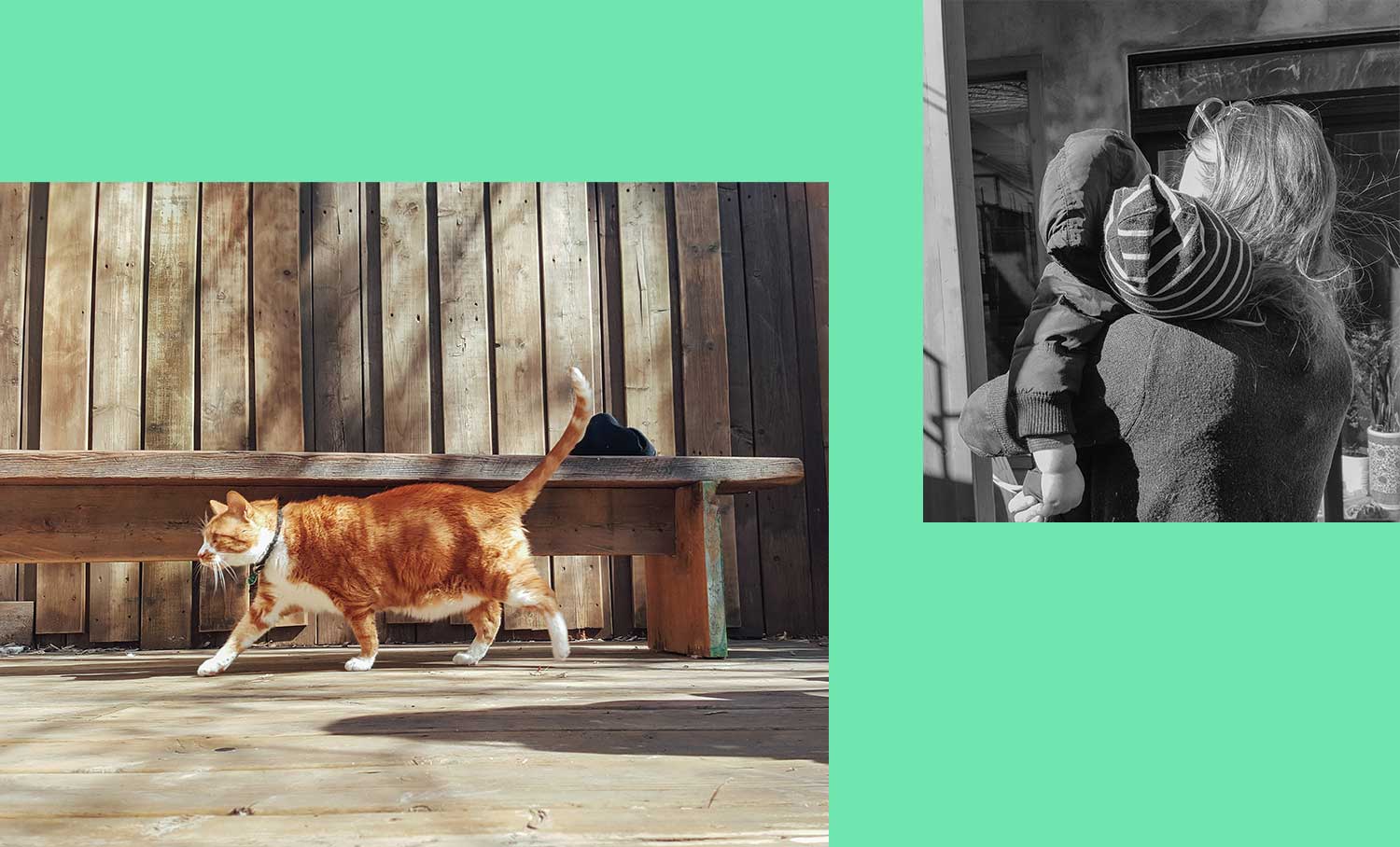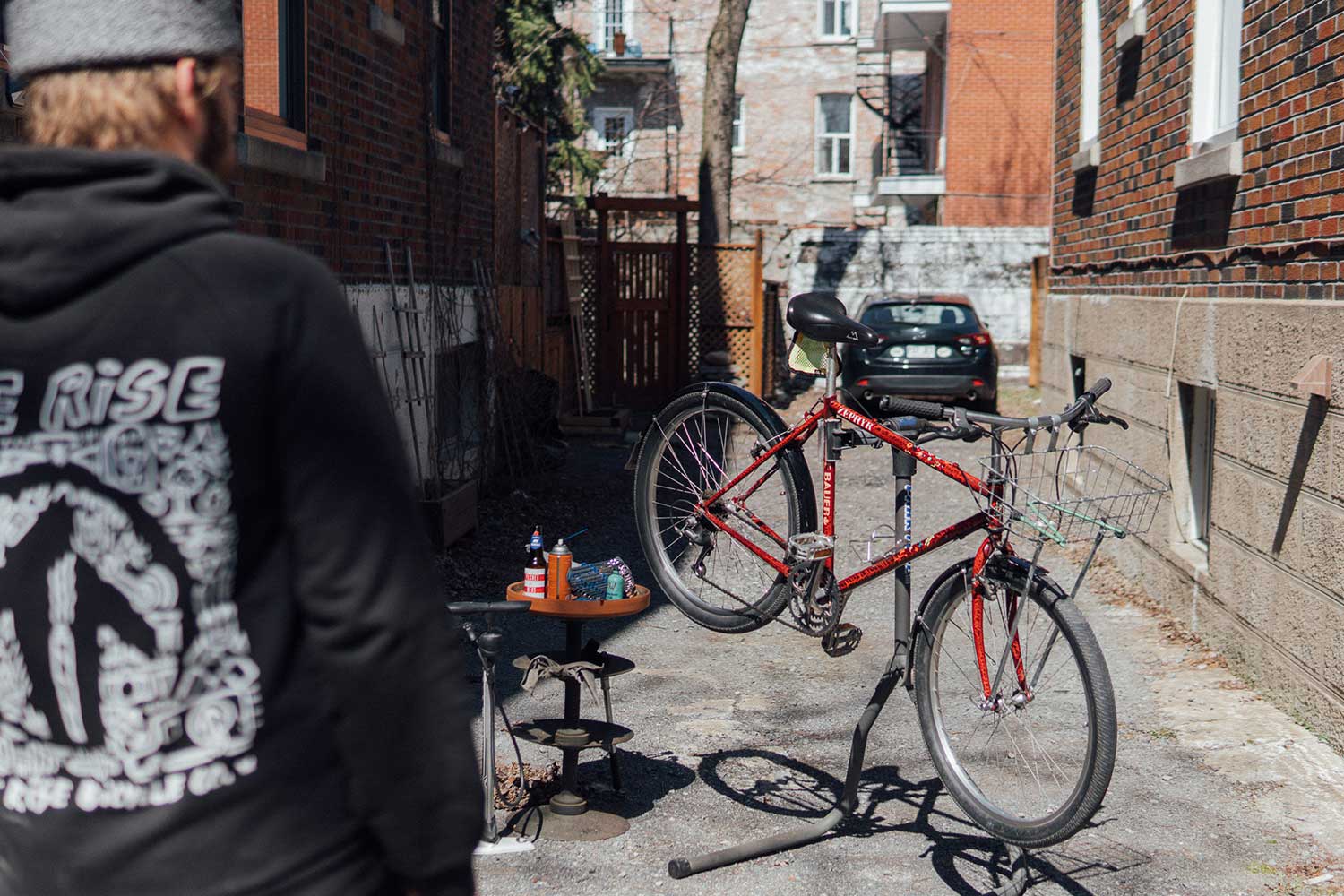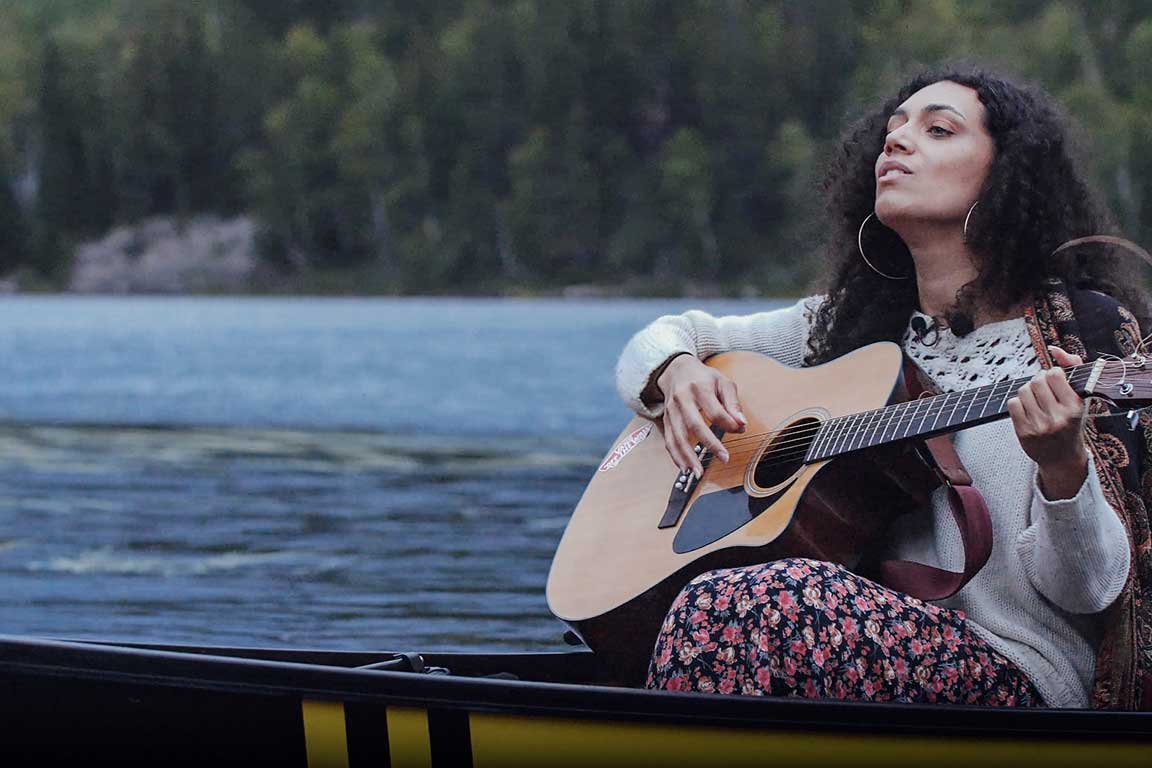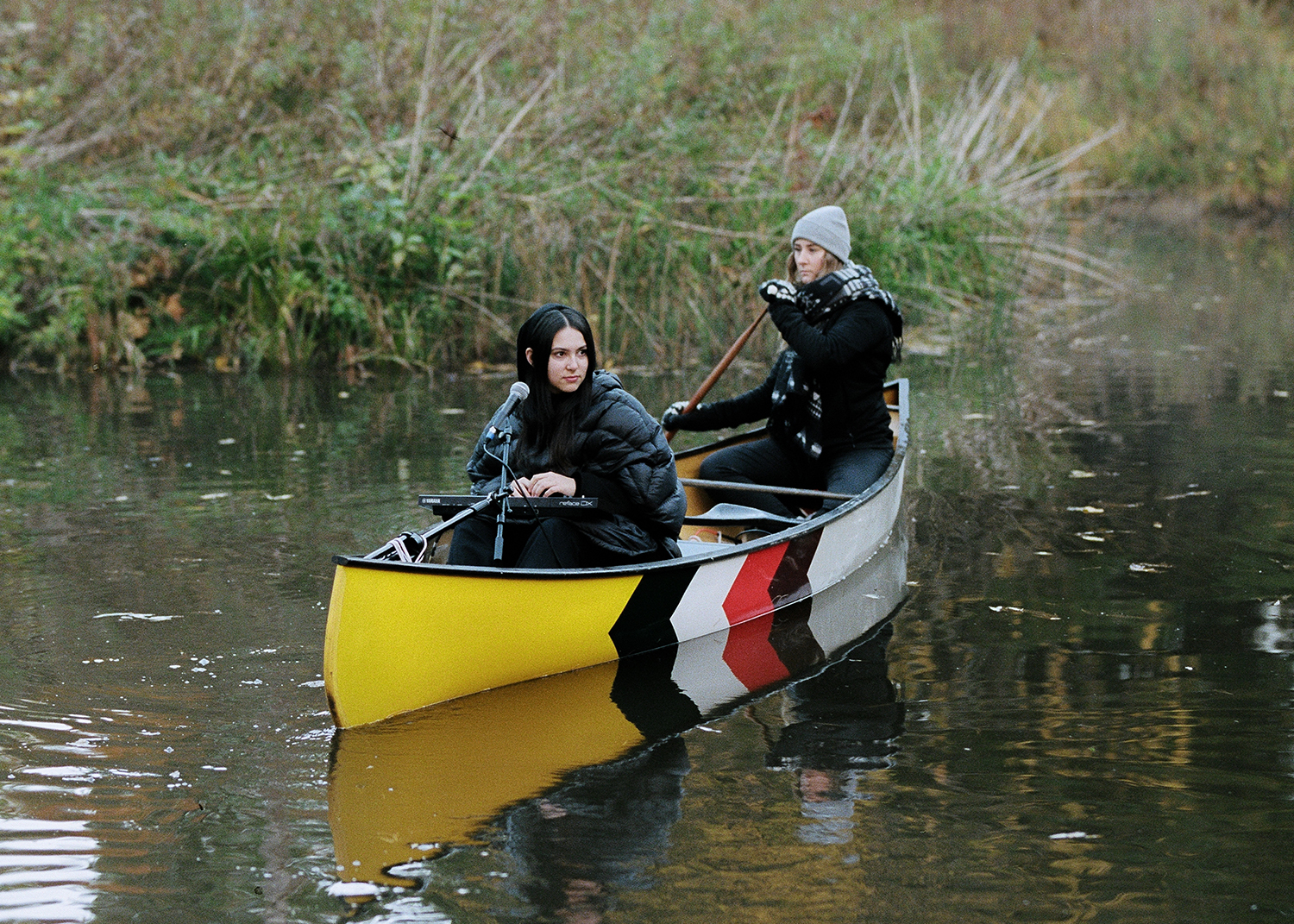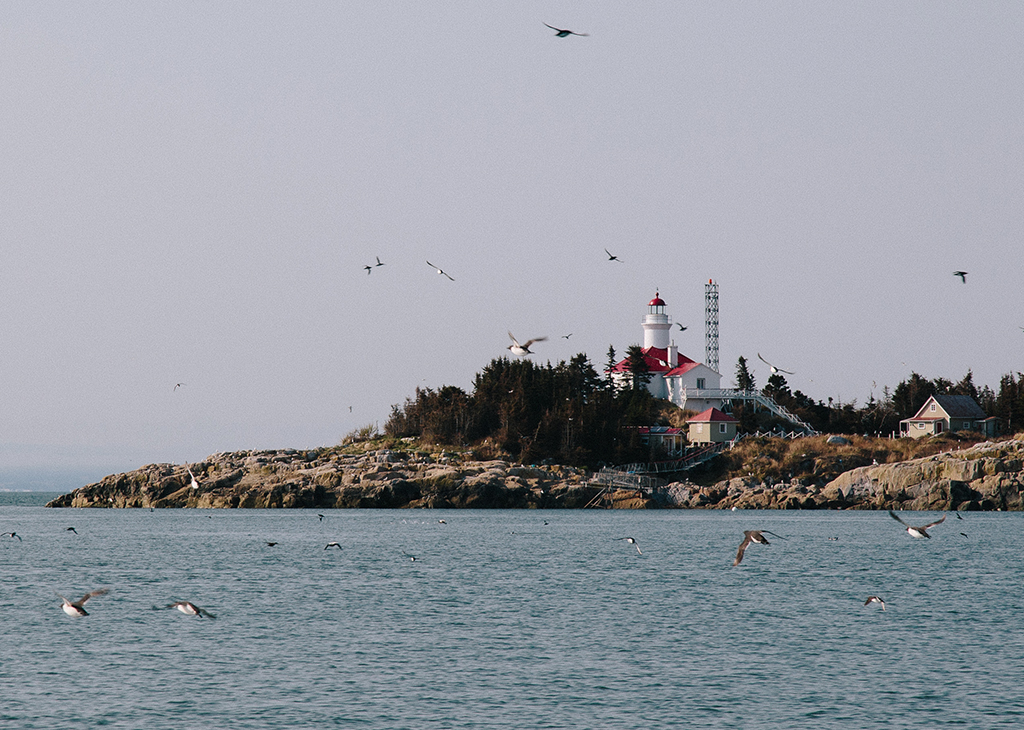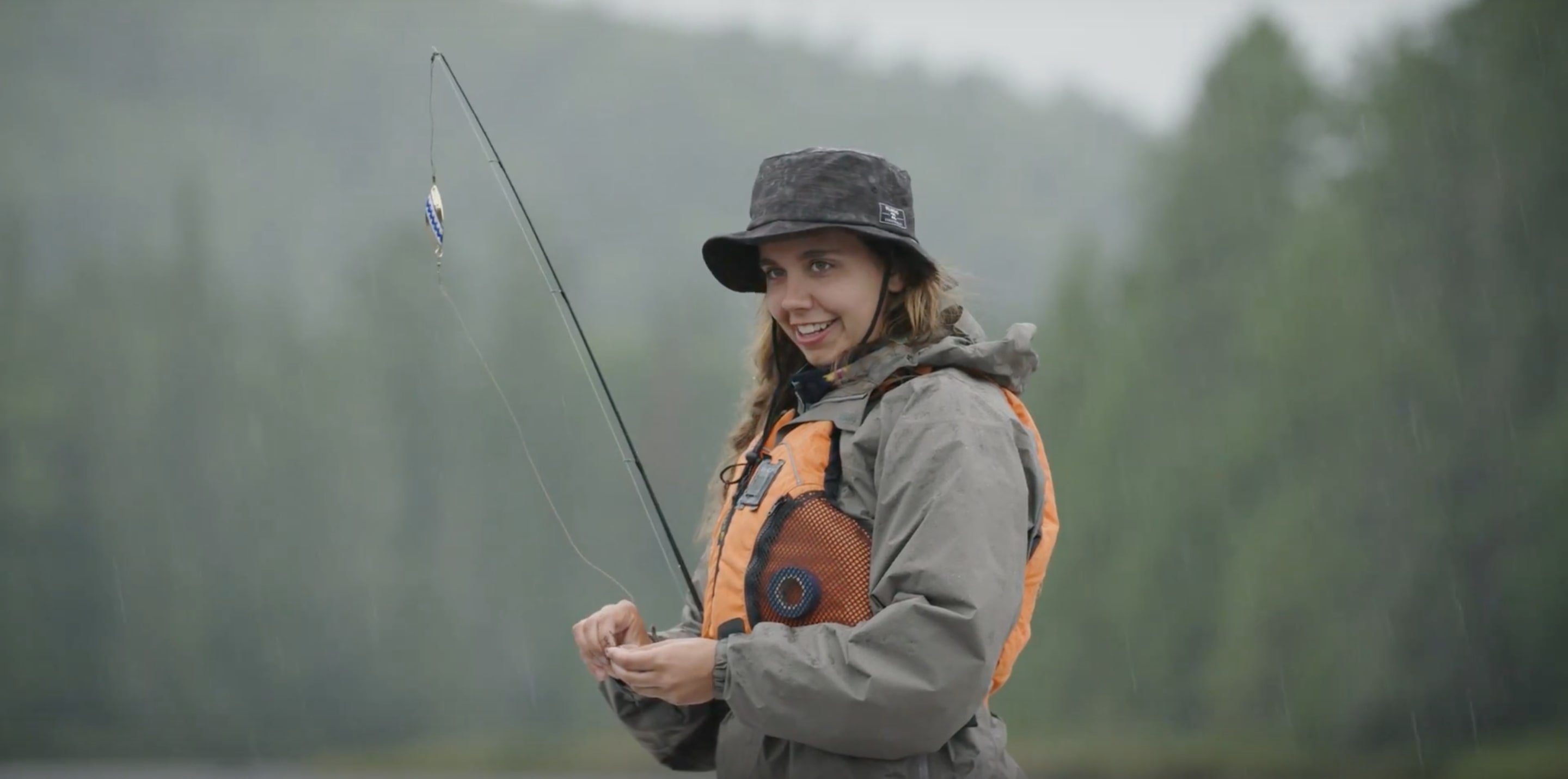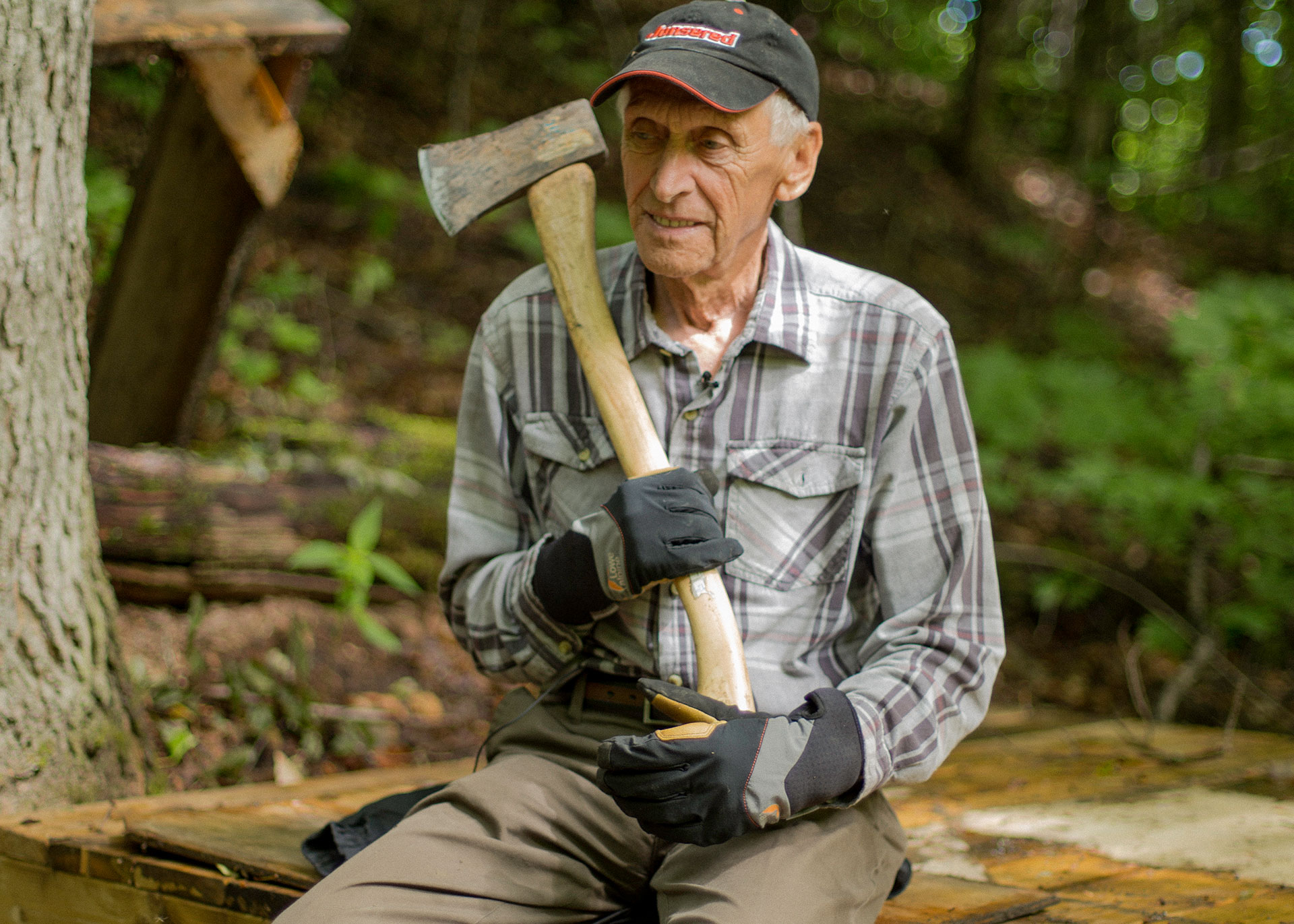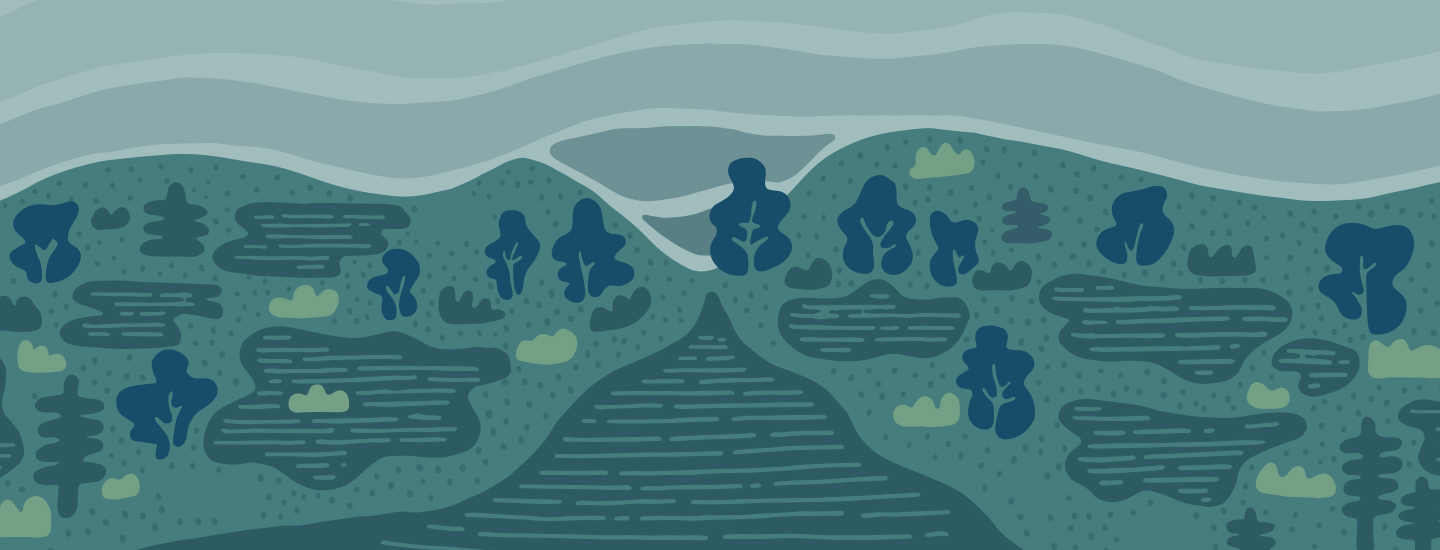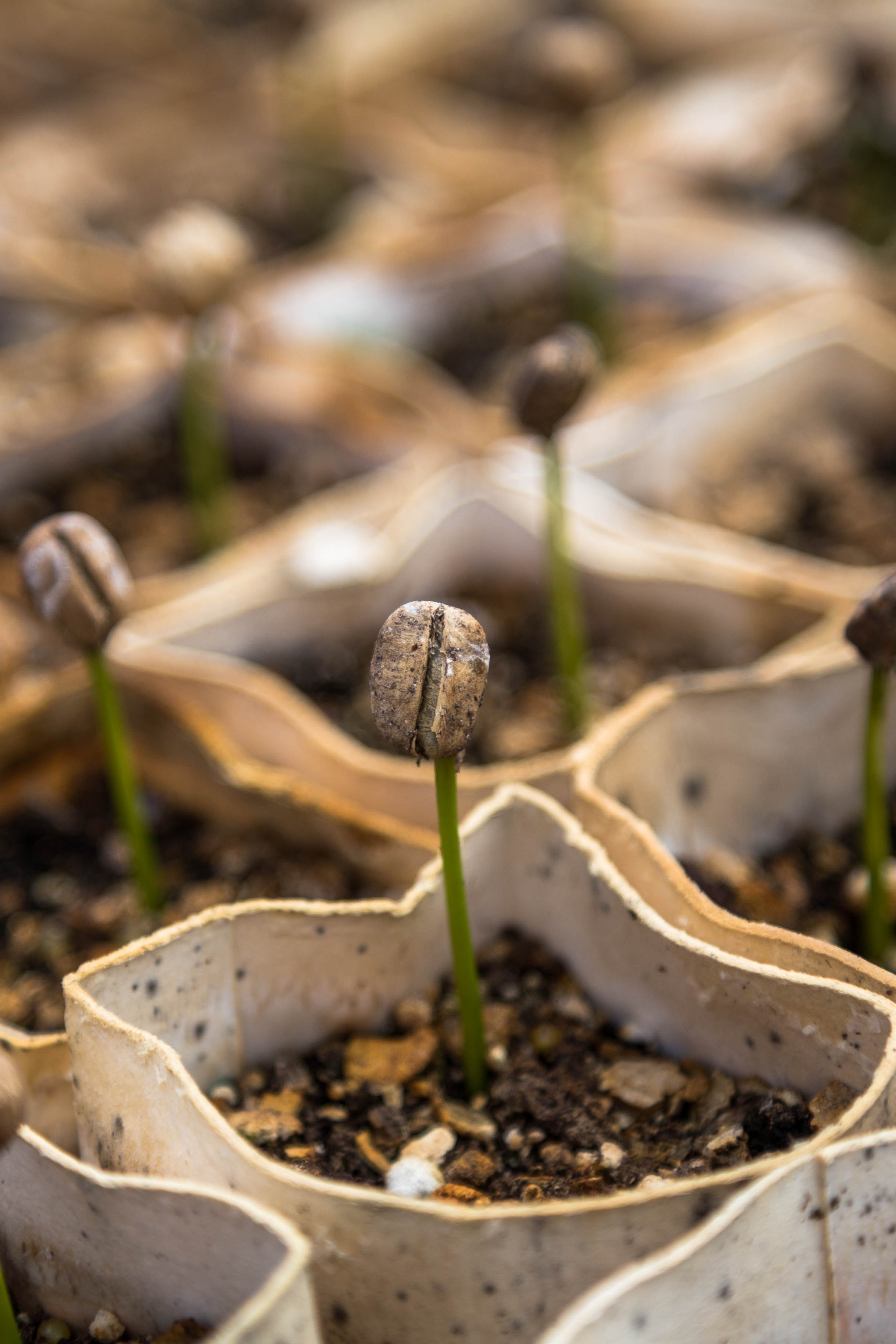New Narratives
Deniers in the Family
You like these people. How do you talk to them about climate change when they don’t believe in it?
Wild how some people are like
“Let’s save the planet!”
And some people are like
“No”
—A Twitter user named Kyle
When it comes to climate change, we all fall somewhere on a spectrum of denial, from compartmentalization (“It’s happening somewhere else”) and minimization (“It’s not that bad”) to outright rejection (“It’s a hoax!”). Even those of us who understand the scope and seriousness of the problem are still, in some sense, deniers: we continue to live as if we don’t know what we know. Most of the time, that’s the best we can do.
For me, the moments of denial are growing fewer. More of my thoughts are refracted through the lens of this intractable crisis. I’m now the kind of guy who brings it up in polite conversation, around people who are not necessarily receptive. Sometimes the topic comes up naturally, but usually there’s no smooth segue to talking about the end of the world.
Still, it feels necessary to be that guy. It can be uncomfortable, but addressing this crisis feels contingent on all of us getting on the same page. And we’re not even close. Until now it’s always been okay to agree to disagree, but that no longer feels like an adequate response.
Katharine Hayhoe is a leading climate scientist and an authority on how to communicate about climate change. One of the first profound disagreements she ever had on the topic was with her future spouse. “My husband, who grew up on a horse farm in conservative Virginia, had never met anyone who shared his values who thought climate change was real,” she wrote in a piece for Chatelaine. It took a great deal of patient and caring effort before he came around.
Hayhoe says the single most important thing we can do to start addressing the climate crisis is to talk about it. She still deals with a lot of pushback in her work. As the problem has grown more urgent and the communications about it more alarming, the resistance has grown fiercer (online she’s been called, among other things, “handmaiden to the Antichrist”). But, in my limited experience, this opposition is even harder to deal with when it comes from people you care about. Which brings me to my two brothers-in-law — let’s call them Marvin and Mitchell.
***
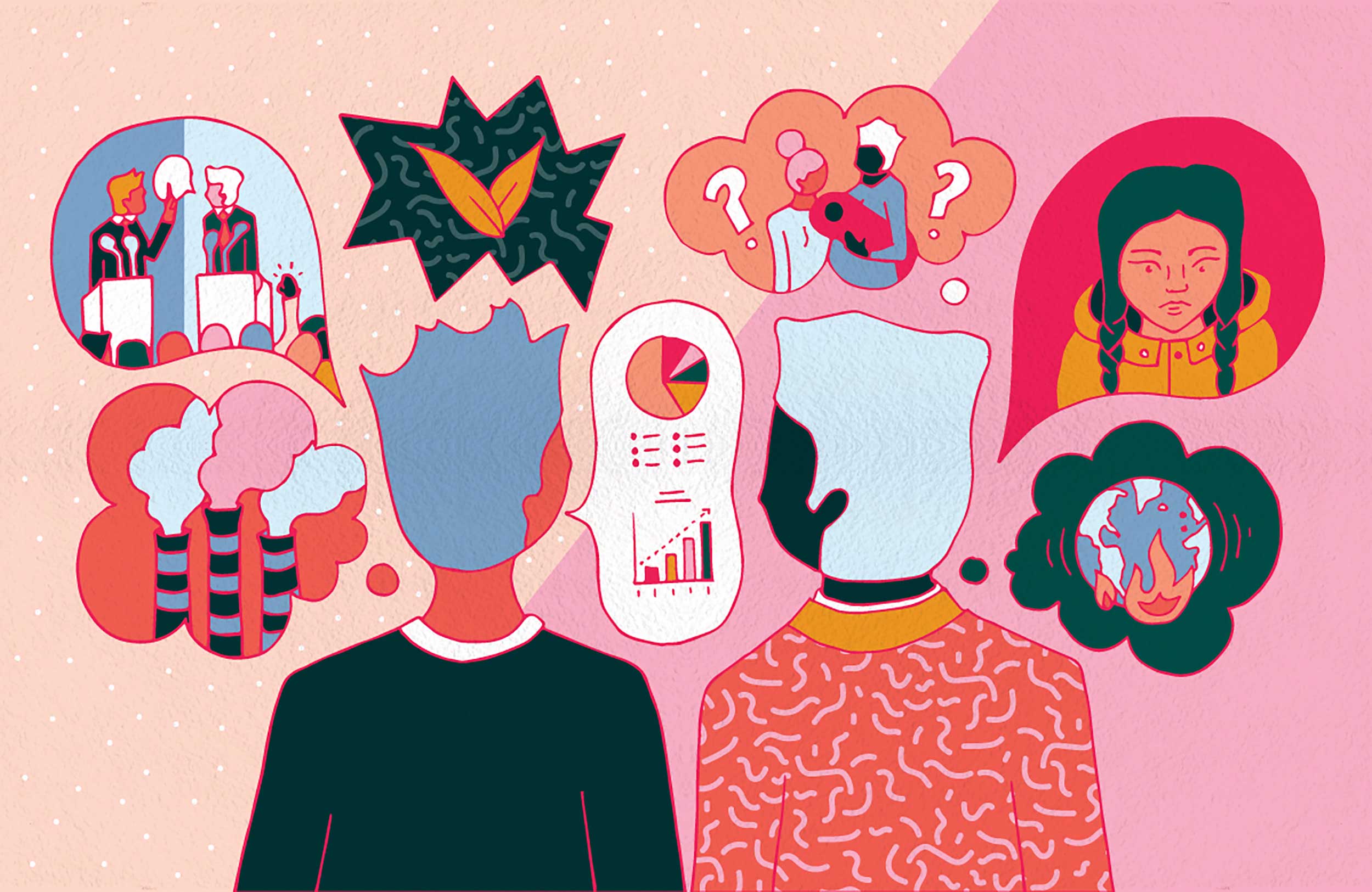
Marvin works for a large not-for-profit. He has a background in finance and is currently earning his MBA. He reads widely and is one of these people who can draw on a deep reserve of random facts when we’re talking about even the most obscure topics. (I, for one, had no idea that the inheritance tax law in France was especially punitive before I met Marvin.) He’s a self-described libertarian and, as such, hates the government with a passion most would reserve for their least-favourite airline. Though scientifically minded, he’s skeptical of the scientific findings on climate change.
Mitchell is a mechanic. He runs his own company that fixes large and specialized machines. He’s an extraordinarily talented craftsman who builds motorcycles as a hobby, and he works harder than anyone I know. He has, however, been known to fall down the rabbit hole of far-right conspiracy theories, and gets a non-zero percentage of his news from social media accounts that I suspect are not drawing their information from blue-chip scientific journals. Mitchell distrusts the “liberal” media (obviously) and has an abiding fondness for Donald Trump. Like the shameless demagogue to the south, he thinks climate change is a myth. But, very much unlike him, Mitchell is smart and curious.
The first time the three of us started talking about climate change was at a family meal around Christmas last year. Over several hours, the discussion devolved into an episode from some bad podcast, the kind put on by a trio of guys who think they’re smarter than they are.
The conversation was mostly friendly, even as it spiralled off on other political tangents. Marvin invoked Stalin at least once. Though a few of our younger cousins seemed to view it as a learning opportunity, almost everybody else was thoroughly annoyed. I know this because when the subject of climate change came up again that spring at my girlfriend’s family cottage, they were less accommodating.
We had just finished a big, Italian lunch when M & M started riffing about how silly it was for governments to try to do something about climate change. I tried to stay out of it, but when others started to agree with them, it felt irresponsible not to say something. “What if you’re wrong?” I asked them. What if the urgent warnings coming from these respected and fundamentally conservative scientific bodies about the potential destabilization of civilization in the next 100 years are genuine? Shouldn’t we worry about that?
They looked at me, sort of bemused. “You just couldn’t help yourself,” Marvin said.
Sensing — correctly — that this conversation was going to take a while, my girlfriend told the three of us, basically, to shut up and go install the dock before we lost daylight. Down by the water, Mitchell kept saying, “I guess I’m a bad person because I don’t believe in climate change, huh?” We all laughed, them a little too hard. Lighten up, buddy, seemed to be their overarching sentiment toward me. It’s not that bad, and even if it is, it’s not your problem. I let it go. I didn’t want to make anyone feel like a bad person, even as a joke. But part of me wanted them to feel some measure of guilt for refusing to think about this. There’s a freight train bearing down on us, the scientists have been saying so for years, and we’re all tied to the tracks. Yet it was my reaction that seemed out of line.
“When Bill Nye goes on TV and swears at people, that’s just not productive,” Marvin said later that afternoon. He was talking about the Science Guy’s then-recent segment on John Oliver’s show: “The Planet’s on Fucking Fire!” Marvin repeated the sentiment when Greta Thunberg chewed out the leaders of the United Nations in September. He said he was skeptical of her “catastrophizing” and that she was shaming her audience. He noted this without apparent regard for the fact that, as I would later point out to him, some 99 per cent of climate scientists agree that what she’s “catastrophizing” about is already a catastrophe in progress, and that she was “shaming” those world leaders for their failure to do much of anything about it in the decades they’ve known.
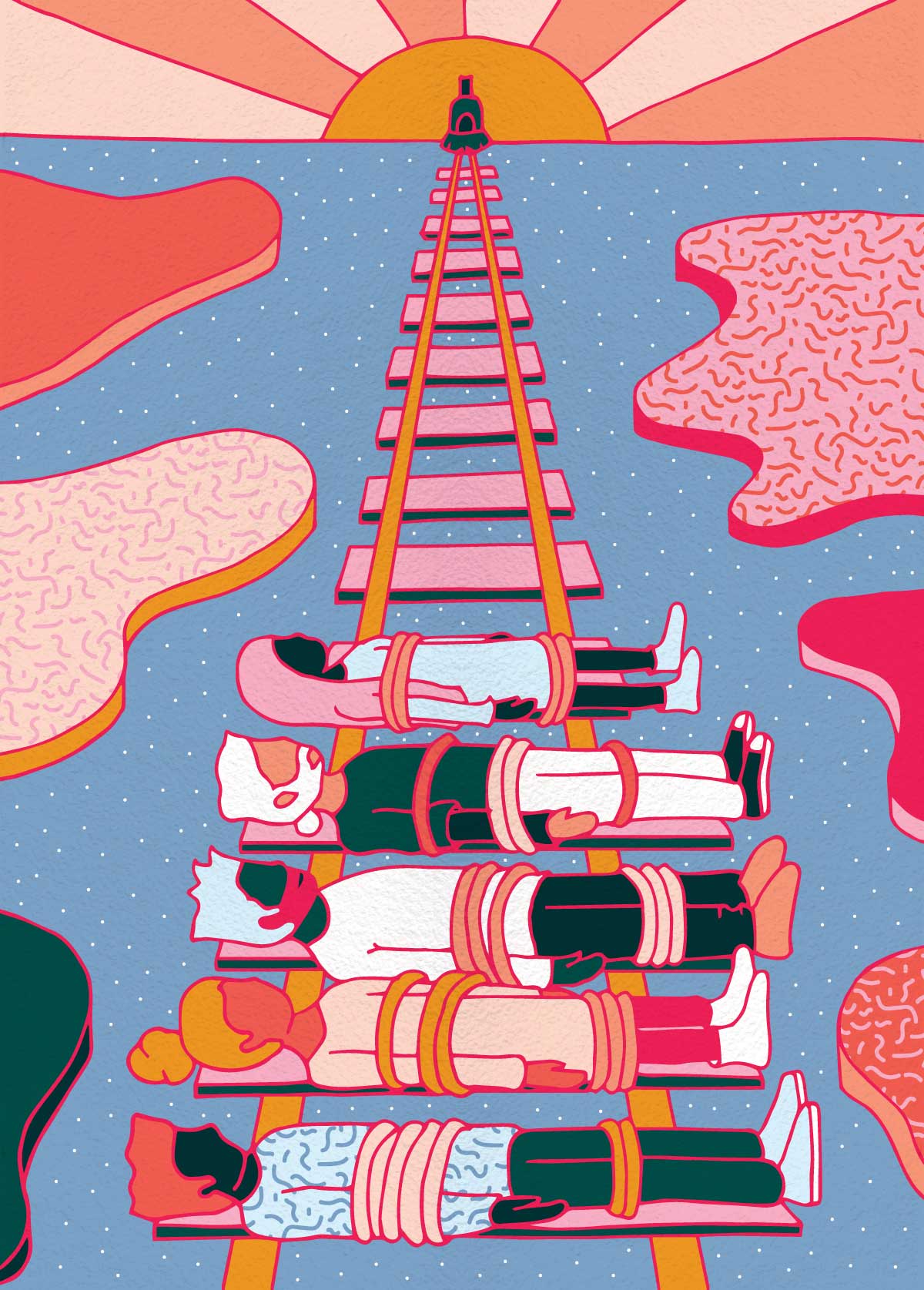
Almost every other effort to communicate the gravity of climate change has failed, which makes me think that catastrophizing and shaming might really be the most “productive” ways to talk about it. Then again, I’m not Greta Thunberg, and Marvin and Mitchell aren’t world leaders. So, maybe for us, there is a better way.
***
Dr. Courtney Howard is an emergency doctor in Yellowknife. As a climate change activist, she has plenty of experience discussing this issue with people who would prefer not to. She was the lead author of the Canadian brief of the Lancet’s countdown paper on climate change, an international initiative in which hundreds of experts have tracked, in all its evolving complexity, the public health implications of what has been called “the greatest health threat of the 21st century.” Howard has witnessed first-hand some of the disturbing effects of this crisis, such as the increase in asthma exacerbations in her ER after two consecutive record-breaking wildfire seasons in Western Canada. Her house, built atop now-melting permafrost, began to slump off its foundations several years ago, requiring thousands of dollars in structural reinforcement.
She talks about climate change the way she would any other dire medical diagnosis: it can prompt a range of emotions in the patient that can be difficult to process or understand. There are more and less effective ways to deal with that.
Meaningfully confronting the realities of the climate crisis will require significant sacrifices. The transformation required has often been compared to the mobilization efforts during the Second World War and, more famously, Roosevelt’s New Deal. However, some have argued that what’s required is actually far more drastic than either of those historical precedents.
On an interpersonal level, the necessary changes will inevitably create painful rifts between family and friends. Howard invites me to imagine that I had a good friend whose entire family worked in the oil sector. If, by some virtuosic display of persuasion, I was able to convince them to recognize the true scope and severity of this problem, then I would also be making every family dinner for them very difficult for the rest of their life. “That’s a big ask,” she says.
Howard herself has had to deal with similar tensions in her own life. She lives in an oil-burning house, and, in the frigid temperatures of their subarctic town, the boiler recently broke down, forcing her to replace it with a new one. Given the absence of any viable alternatives and the new boiler’s prolonged lifespan, it means her family will now be burning fossil fuels much longer than she wants to.
“We are living in a period of transition, and that transition is often going to be difficult,” she says. “We need to be kind to one another.”
***
Marvin and I went out for drinks near his office one night in September to talk one-on-one. We both agreed it would be better than hijacking a family event, and, for all his terrible opinions, Marvin has always made a good-faith effort to try and see where I was coming from. I felt I owed him the same. This seemed like a good place to start.
We talked about his skepticism about climate modelling, about the reliability of the scientific predictions, about Thunberg’s movement and politics that have arisen in response. We also talked about some of my anxieties about the future, including decisions like having kids. Despite his political leanings, Marvin accepted that a carbon tax can be effective. Economists across all political stripes agree on that much. But even if he could be convinced it was necessary, he’s no great fan (he used the phrase “dressing up a turd”). He doesn’t automatically embrace the same conspiracies that Mitchell does — that climate change is a myth concocted by the global elite to seize power, for example — but, to my profound disappointment, neither has he completely ruled them out.
What should be obvious by now is that the source of his denial is not science, but politics.
The reason he expends his considerable mental faculties trying to punch holes in arguments like “we should be worried about climate change and want to do something about it” has almost nothing to do with scientific skepticism and much more to do with his views on the hypocrisy of politicians, as well as negative caricatures of the vegan, social equity, and other progressive movements that he believes have hitched their wagons to environmentalism. I don’t agree with him about any of that. To me, all these issues are connected, and are much bigger than the placard-waving college students who, for many people, have become the face of these movements. But it doesn’t feel important to fight him on this point. What matters here is that, to him, I am not one of the caricatures.
At the end of the evening, he tells me I have helped change the way he thinks about some of this and admits that he may accept more of it in time. Despite my rather annoying penchant for raising this topic, I don’t especially enjoy talking about it. But Marvin does. He seems sincerely interested in the truth, and he welcomes the debate. We will, invariably, continue to disagree strongly about what the truth is, but I think these conversations have helped us inch our way toward shared ground, if not in terms of our beliefs exactly, at least in the fact that we care enough to keep trying to change each other’s minds. For me, it’s also been an opportunity to process my feelings — to avoid retreating into denial — and Marvin even seems to have moved a little further down the spectrum of denial himself. That seems like the most I can hope for right now.
